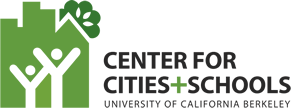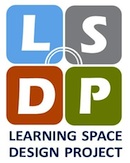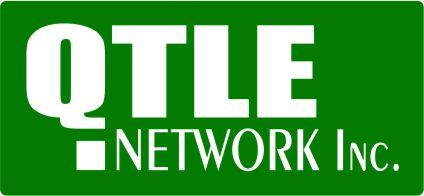Partner Institutions
Council of Educational Facility Planners International (CEFPI)
 Established in 1921, Council of Educational Facility Planners International is a worldwide
professional 501 (c)(3) nonprofit association whose sole mission is improving the
places where children learn. CEFPI members, individuals, institutions and corporations
are actively involved in planning, designing, building, equipping and maintaining
schools and colleges. CEFPI embraces a diverse community of more than 4,000 professionals
with one single goal – building healthy, safe, sustainable and resilient 21st century
learning environments. CEFPI members include architects, planners, engineers, K- 12
administrators, higher education professors, construction management firms, facility
maintenance and operations professionals, consultants, manufacturers, suppliers, and
state and provincial agency representatives.
Established in 1921, Council of Educational Facility Planners International is a worldwide
professional 501 (c)(3) nonprofit association whose sole mission is improving the
places where children learn. CEFPI members, individuals, institutions and corporations
are actively involved in planning, designing, building, equipping and maintaining
schools and colleges. CEFPI embraces a diverse community of more than 4,000 professionals
with one single goal – building healthy, safe, sustainable and resilient 21st century
learning environments. CEFPI members include architects, planners, engineers, K- 12
administrators, higher education professors, construction management firms, facility
maintenance and operations professionals, consultants, manufacturers, suppliers, and
state and provincial agency representatives.
Education Facilities Clearinghouse (EFC)
 The Education Facilities Clearinghouse (EFC) provides a website of best practices
and provides technical assistance and training to school divisions on a range of facility
topics. The EFC is a program of the George Washington University and the Graduate
School of Education and Human Development and is funded by the U.S. Department of
Education.
The Education Facilities Clearinghouse (EFC) provides a website of best practices
and provides technical assistance and training to school divisions on a range of facility
topics. The EFC is a program of the George Washington University and the Graduate
School of Education and Human Development and is funded by the U.S. Department of
Education.
21st Century School Fund (21CSF)
![]() The 21st Century School Fund (21CSF) was founded in 1994 on the premise that communities
are responsible for creating healthy, safe, and educationally appropriate learning
environments. 21CSF conducts research, develops policy proposals, engages communities,
develops technology tools and offers technical assistance to improve public school
facilities, particularly for low income communities. 21CSF believes that every child
should learn in an educationally appropriate, healthy and safe school that serves
as a community anchor and is built and maintained in an environmentally and fiscally
responsible manner.
The 21st Century School Fund (21CSF) was founded in 1994 on the premise that communities
are responsible for creating healthy, safe, and educationally appropriate learning
environments. 21CSF conducts research, develops policy proposals, engages communities,
develops technology tools and offers technical assistance to improve public school
facilities, particularly for low income communities. 21CSF believes that every child
should learn in an educationally appropriate, healthy and safe school that serves
as a community anchor and is built and maintained in an environmentally and fiscally
responsible manner.
Center for Green Schools
 The Center for Green Schools at the U.S. Green Building Council (USGBC) works to ensure
that every student has the opportunity to attend a green school within this generation.
The Center provides the resources and support to elevate dialogue, accelerate policy,
and institute innovation toward healthy, high-performing schools and campuses. The
Center works directly with staff, teachers, faculty, students, administrators, elected
officials and communities to drive the transformation of all schools into sustainable
places to live and learn, work and play. To learn more, explore the Center for Green
Schools Report Cards
The Center for Green Schools at the U.S. Green Building Council (USGBC) works to ensure
that every student has the opportunity to attend a green school within this generation.
The Center provides the resources and support to elevate dialogue, accelerate policy,
and institute innovation toward healthy, high-performing schools and campuses. The
Center works directly with staff, teachers, faculty, students, administrators, elected
officials and communities to drive the transformation of all schools into sustainable
places to live and learn, work and play. To learn more, explore the Center for Green
Schools Report Cards
The Center for Cities + Schools (CC+S)
 The Center for Cities + Schools (CC+S) at the University of California, Berkeley harnesses
the potential of urban planning to close the opportunity gap and improve education.
CC+S’s research, policy reports and best practice tools are used across the country
to support new approaches to school facility investment, school siting, transportation
infrastructure, affordable housing, community engagement in planning, school reform,
and more. Informed by the growing evidence that educational facilities contribute
to student achievement and community quality, CC+S provides thoughtful, objective,
and empirically-driven research and policy and practice recommendations to federal,
state, and local leaders to ensure high quality learning environments for all children
in schools that are sustainable centers of communities.
The Center for Cities + Schools (CC+S) at the University of California, Berkeley harnesses
the potential of urban planning to close the opportunity gap and improve education.
CC+S’s research, policy reports and best practice tools are used across the country
to support new approaches to school facility investment, school siting, transportation
infrastructure, affordable housing, community engagement in planning, school reform,
and more. Informed by the growing evidence that educational facilities contribute
to student achievement and community quality, CC+S provides thoughtful, objective,
and empirically-driven research and policy and practice recommendations to federal,
state, and local leaders to ensure high quality learning environments for all children
in schools that are sustainable centers of communities.
Research Centre for Learning and Teaching (CfLaT)
 CfLaT at Newcastle University aims to research learning and teaching in a range of
contexts, particularly in schools and other formal educational settings, in order
to develop understanding for those who want to improve the quality of education. The
research centre has a reputation for reviews and empirical research specifically relating
to the physical environment of learning as well as acknowledged expertise in a number
of areas which have particular relevance to understanding and developing educational
spaces. These include the application and development of innovative pedagogies, curricular
change, use of ICT and classroom interaction.
CfLaT at Newcastle University aims to research learning and teaching in a range of
contexts, particularly in schools and other formal educational settings, in order
to develop understanding for those who want to improve the quality of education. The
research centre has a reputation for reviews and empirical research specifically relating
to the physical environment of learning as well as acknowledged expertise in a number
of areas which have particular relevance to understanding and developing educational
spaces. These include the application and development of innovative pedagogies, curricular
change, use of ICT and classroom interaction.
The Learning Space Design Project (LSDP)
 The Learning Space Design Project (LSDP) at the University of San Diego’s Institute
for Entrepreneurship in Education (IEE) works with school districts, schools, program
managers, and education design architects to develop intentionally designed physical
spaces that structurally support these new kinds of personalized and technology-rich
blended learning environments. Through research and evidence-based practice, the LSDP
brings the needed resources to engage a new conversation about facilities design that
is driven by the organization’s own core education principles and guided by its approach
to the delivery of learning and teaching. The LSDP draws on the expertise of researchers
from the IEE Center for Education Policy and Law and professional learning specialists
from the IEE Mobile Technology Learning Center.
The Learning Space Design Project (LSDP) at the University of San Diego’s Institute
for Entrepreneurship in Education (IEE) works with school districts, schools, program
managers, and education design architects to develop intentionally designed physical
spaces that structurally support these new kinds of personalized and technology-rich
blended learning environments. Through research and evidence-based practice, the LSDP
brings the needed resources to engage a new conversation about facilities design that
is driven by the organization’s own core education principles and guided by its approach
to the delivery of learning and teaching. The LSDP draws on the expertise of researchers
from the IEE Center for Education Policy and Law and professional learning specialists
from the IEE Mobile Technology Learning Center.
The School Design and Planning Laboratory (SDPL)
Planning activities require a wide range of knowledge, skills, patience, and a genuine concern for people that use a facility. The School Design and Planning Laboratory (SDPL), since 1997, has served as an International information source, encouraging the involvement of a broad community base in planning for educational facilities. One major success has been the involvement of University of Georgia graduate students in training and the practice of planning and designing facilities. The SDPL is closing its public support component in 2015 after 18 years of service. The laboratory urges interested people to seek out the Educational Facilities Clearinghouse, CEFPI, and International Society for Educational Planning for school facilities services.
QTLE Network (Quality of Teaching and Learning Environments Network)
 The QTLE Network (Quality of Teaching and Learning Environments Network) in Winnipeg,
Manitoba, Cananda identifies, develops and provides reliable tools and techniques
that assist education enterprises in setting the physical stage for high quality teaching
and learning environments.
The QTLE Network (Quality of Teaching and Learning Environments Network) in Winnipeg,
Manitoba, Cananda identifies, develops and provides reliable tools and techniques
that assist education enterprises in setting the physical stage for high quality teaching
and learning environments.
The Institute to Advance International Education (IAIE)
The Institute to Advance International Education (IAIE) develops and delivers English
language programs for academic and career purposes. It delivers solutions to support
English language teaching and around the globe.
IAIE is a full-service education agency:
· Professional Development and Training
· Literacy and English language learners
· Teacher and Trainer Recruitment
· Curriculum Design and Learning Spaces
· Program Evaluation
We listen to our clients and find exactly the right solutions to meet their needs.